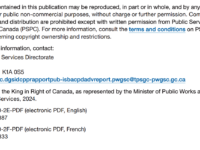Crown copyright, which grants the government exclusive copyright in any any work that is, or has been, prepared or published by or under the direction or control, has long been the focus on copyright and open government advocates who have called for its elimination. Under the current system of crown copyright that dates back for decades, government departments can use copyright to limit the publication or distribution of public works. While the government moved away from paid licensing to a non-commercial licence in 2010, commercial uses are still subject to permission and licence. The issue was one of the most controversial at the 2019 copyright review with the committee split on the issue: the government supported the creation of an open licence, while both the Conservatives and NDP backed its elimination altogether.
While debate over crown copyright continues (this 2019 Law Bytes podcast episode with Amanda Wakaruk and Jeremy de Beer focused on it), NDP MP Brian Masse has been a consistent advocate in favour of its elimination. There have been bills to eliminate crown copyright that date back to the 1990s, but Masse has introduced several crown copyright bills in recent years. Last week, he did it again with Bill C-374.











